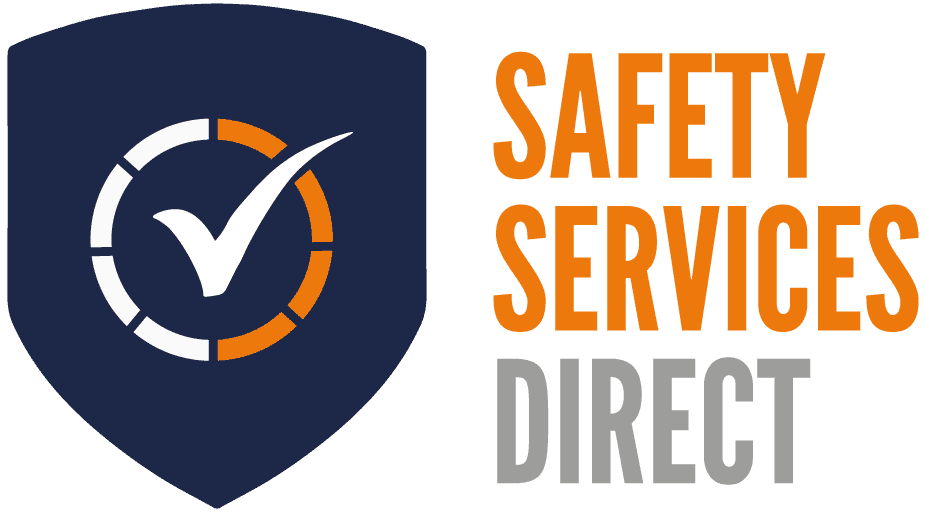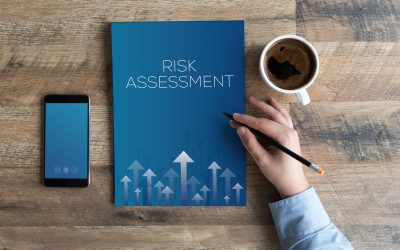Among the many accreditation bodies in the UK, the UKAS is at the top. This is because, when it comes to health and safety advisory services, credibility and trust are of top importance, and the UKAS has these in abundance. Why, you ask? Well, it’s the only accreditation body licensed by DBT (the Department for Business and Trade) to assess the competence of other organisations that provide certification, testing, inspection and calibration services.
In this comprehensive guide, Safety Services Direct dives into everything you need to know about UKAS accreditation and its significance for businesses operating in the health and safety sector.
What is UKAS?
The United Kingdom Accreditation Service (UKAS) is the national accreditation body for the United Kingdom, recognised by the UK government to assess the competence and integrity of organisations that provide testing, calibration, certification, and inspection services.
Established in 1995, UKAS operates independently of the government but is appointed by the UK government as the sole national accreditation body under international agreements.
What is UKAS Accreditation?
At its core, UKAS accreditation signifies competence, impartiality, and integrity. Accreditation by UKAS demonstrates adherence to rigorous standards and best practices, instilling confidence in the quality and reliability of the services an organisation provides its customers and clients.
UKAS accreditation signifies that an organisation has been rigorously assessed against internationally recognised standards and demonstrated competence, impartiality, and consistency in delivering its services. Accreditation by UKAS assures customers, stakeholders, and regulators that the accredited organisation operates to the highest standards. It is widely regarded as a mark of excellence and is often a prerequisite for organisations seeking to demonstrate competence and gain credibility in their respective industries.
The Accreditation Process
Obtaining UKAS accreditation is no small feat. It entails a comprehensive assessment of an organisation’s capabilities by the UKAS conformity assessment body. Each step is meticulously scrutinised, from the initial application to the final assessment, to ensure compliance with stringent criteria. Here’s a closer look at each stage:
- Preparation: Before initiating the accreditation process, organisations must ensure that they meet the prerequisites and are adequately prepared to undergo assessment. This may involve conducting internal audits and risk assessments, reviewing processes and procedures, and addressing any gaps or deficiencies identified.
- Application: The first formal step in the accreditation process is submitting an application to UKAS. This application outlines the scope of accreditation sought and provides details about the organisation’s structure, processes, and quality management system.
- Document Review: Once the application is received, UKAS conducts a thorough review of the organisation’s documentation, including policies, procedures, and quality manuals. This review ensures that the organisation has established robust systems and processes to meet accreditation standards’ requirements.
- On-Site Assessment: Following the document review, UKAS conducts an on-site assessment of the organisation’s facilities, operations, and processes. During this assessment, a team of assessors thoroughly evaluates the organisation’s compliance with international standards, conducting interviews, examining records, and observing procedures in action.
- Evaluation: Based on the findings of the on-site assessment, UKAS evaluates the organisation’s compliance with accreditation standards and determines whether accreditation should be granted. This evaluation considers factors such as the effectiveness of the organisation’s quality management system, personnel competency, and the adequacy of facilities and equipment.
- Corrective Action: If any non-conformities or areas for improvement are identified during the assessment, the organisation is allowed to address these issues through corrective action. This may involve implementing changes to processes, procedures, or systems to bring them into compliance with accreditation standards.
- Final Assessment: Once corrective actions have been implemented and verified, UKAS conducts a final assessment to ensure that all accreditation requirements have been met. This assessment serves as a final validation of the organisation’s readiness to receive accreditation.
- Accreditation Decision: Following the final assessment, UKAS makes an accreditation decision. Accreditation is granted if the organisation has demonstrated compliance with all accreditation requirements. This marks a significant milestone for accredited organisations, signifying their commitment to quality and excellence.
Benefits of UKAS Accreditation for Businesses
For businesses, achieving UKAS accreditation opens doors to many opportunities and advantages. Here are some key benefits:
- Enhanced Credibility and Trust: UKAS accreditation signals to clients, stakeholders, and regulators that a business operates to the highest standards.
- Assurance of Competence and Reliability: Accreditation by UKAS validates an organisation’s competence and reliability in delivering health and safety advisory services, instilling confidence among clients and stakeholders.
- Access to Wider Markets and Opportunities: Accredited businesses gain access to broader markets and opportunities, as many clients and industries require or prefer services from UKAS-accredited providers.
- Compliance with Regulatory Requirements: UKAS accreditation demonstrates compliance with regulatory requirements and industry standards, ensuring that businesses adhere to the highest levels of quality and safety.
- Continuous Improvement and Best Practices: Through the accreditation process, businesses are encouraged to embrace continuous improvement and adopt best practices, driving innovation and excellence in providing health and safety advisory services.
UKAS Compared to Other Accrediting Bodies
In a landscape populated by various accreditation bodies, UKAS stands out. Its robust standards, impartiality, and international recognition set it apart, making it the accreditation body of choice for businesses seeking to distinguish themselves in the health and safety sector.
Let’s delve deeper into the comparison between UKAS and other accrediting bodies:
- Robust Standards: UKAS is renowned for its stringent standards developed in collaboration with industry experts, regulators, and stakeholders. These standards are continually updated to reflect technological advancements, legislation changes, and emerging best practices. As a result, UKAS accreditation assures that organisations adhere to the highest levels of quality and competence.
- Impartiality: UKAS is committed to impartiality and independence in its accreditation activities. Unlike some other accrediting bodies that may have affiliations with specific industries or interest groups, UKAS operates independently of any commercial or governmental interests. This impartiality ensures that accreditation decisions are based solely on objective criteria and are free from bias or influence.
- International Recognition: UKAS accreditation is recognised globally as a mark of excellence and competence. It is a signatory to international agreements and mutual recognition arrangements, which facilitate the acceptance of UKAS-accredited certificates and reports in numerous countries worldwide. This international recognition enhances the credibility and marketability of UKAS accreditation organisations.
- Sector-Specific Expertise: While UKAS accredits organisations across various industries, it has particular expertise in the health and safety sector. As a result, UKAS accreditation is highly valued by businesses operating in this sector.
- Continuous Improvement: UKAS is committed to continuously improving its accreditation processes and practices. It actively seeks feedback from accredited organisations, assessors, and other stakeholders to identify opportunities for enhancement and refinement. This commitment ensures that UKAS accreditation remains relevant, rigorous, and effective in meeting the evolving needs of businesses and regulators.
In Conclusion
UKAS accreditation is a gateway to success for businesses operating in the health and safety sector. By obtaining accreditation, businesses can enhance their credibility, unlock new opportunities, and demonstrate their commitment to quality and safety.
If your business could benefit from adhering to this inspection body’s specified requirements, we recommend that you start with a risk assessment to set your organisation up for success. Our ISO Gap Analysis services are also specifically designed to help your business achieve accreditation.
To learn more about our risk assessments or other health and safety services, call us today at 0121 3487828.









